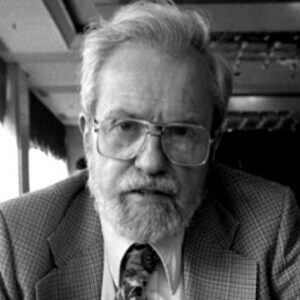American astronomer and UFO researcher Dr. Josef Allen Hynek was best known for his work on UFOs (unidentified flying objects). He worked as a scientific advisor for the UFO studies done by the U.S. Air Force. After that, he started his own independent study of UFOs. Eventually, he came up with a way to divide UFO sightings into six groups based on things like how far away they were, how they looked, and if they had any special features. This system, which is called the Close Encounter classification system, made him one of the most knowledgeable people on this topic. When Hynek was a little boy, his mother read him a book about astronomy. This got him interested in the subject. He was also interested in the world’s mysteries and became interested in the occult. In fact, when he was a teenager, he spent a lot of money on an occult books while his friends bought motorcycles. The young man who wanted to find out where science fell short went into astronomy. He was skeptical at first, but he eventually admitted that astronomers do see UFOs and threw himself into research to figure out what they are.
Early years and childhood
He was born in Chicago on May 1, 1910, to Czech parents. His dad made a living by making cigars, and his mom taught at a local elementary school.
Josef got sick when he was young and had to stay in bed. During this time, his mom would read him books, which sparked his interest in learning more about the world. One of the books she read to him was his favorite high school textbook on astronomy.
He became interested in the occult and the “mystical” when he was a teenager. As a high school student, he spent over $100 on a book called “The Secret Teachings of All Ages.” He was so interested in the occult.
He wanted to be an astronomer, so he went to the University of Chicago and got his bachelor’s degree in 1931. In 1935, he got his Ph.D. in astrophysics from Yerkes Observatory. His thesis, “A Quantitative Study of Certain Phases of F-Type Spectra,” was about how the light from stars changes over time.
Allen Hynek’s Career
In 1936, Hynek became an instructor in the department of physics and astronomy at Ohio State University. There, he specialized in studying how stars change over time and figuring out which ones are spectroscopic binaries.
In 1939, he was made an assistant professor, and in 1941, he taught summer school at the Harvard College Observatory.
During World War II, he took a break from Ohio State University and worked as a civilian scientist at the Johns Hopkins Applied Physics Laboratory from 1942 to 1946. There, he helped the navy make a proximity fuse.
In June 1947, a salesman said he saw shiny things that he couldn’t name fly by Mount Rainer. After this news story came out, a number of other people said they had seen similar things. Officials from the U.S. Air Force started Project Sign and hired Hynek to be the project’s astronomical consultant.
After the war, he went back to work at Ohio State University. In 1950, he was given a full professorship. During this time, he also became the Graduate School’s assistant dean.
He was also the scientific advisor for the U.S. Air Force’s Project Blue Book, which was set up to study UFOs. The project began in 1952, and since then, thousands of reports have been gathered, looked over, and filed. In 1969, the study was stopped by order.
In 1956, he left Ohio State University and joined Harvard professor Fred Whipple at the Smithsonian Astrophysical Observatory. There, he was put in charge of a project for the International Geophysical Year to track an American satellite in space.
When the Soviet Union announced in October 1957 that it would launch Sputnik, the first successful artificial satellite, Hynek and Fred Whipple held press conferences to talk about the progress of the satellite and reassure the public that it was safe.
After finishing his work on the satellite program, he went back to teaching. In 1960, he became a professor and head of the astronomy department at Northwestern University.
In 1973, he started the Center for UFO Studies (CUFOS), a group that does research on UFOs with money from private sources. After he retired from Northwestern in 1978, he put more effort into his center, which he had to move to his home in 1981 because he didn’t have enough money.
Together with Dr. Jacques Vallee and Dr. Claude Poher, he wrote a speech about UFOs that he gave to the United Nations General Assembly in November 1978. The goal of the speech was to start a centralized UFO authority within the United Nations.
Personal History and Legacies
In 1932, he was married for the first time. After seven years of marriage, they broke up.
In 1942, he married Miriam “Mimi” Curtis, who was 14 years younger than him. They were lucky to have five children.
He was told he had a brain tumor when he was older. Even though he was tired from the hard treatment, he had one last wish: he wanted to see Halley’s Comet, which was set to appear in 1986. His friends made sure that his last wish was carried out, and he died soon after, on April 27, 1986, a happy man.
Estimated Net worth
It is thought that J. Allen Hynek has a net worth or income of $7 million. He has so much money because of what he does for a living.
Trivia
This great astronomer was born when Halley’s Comet was around and died when it came back again.


